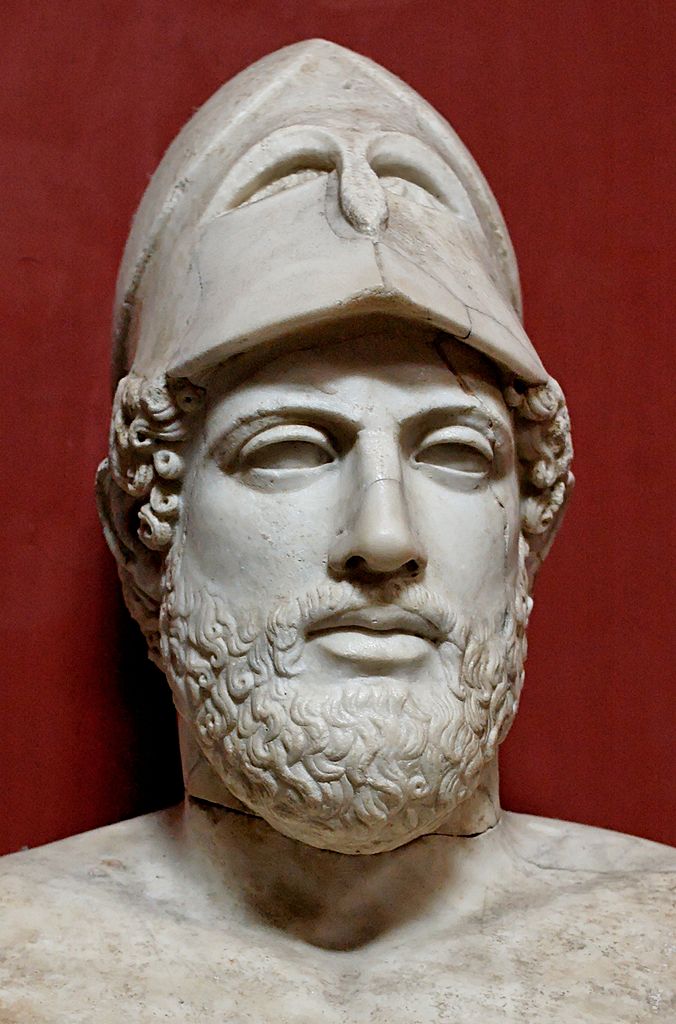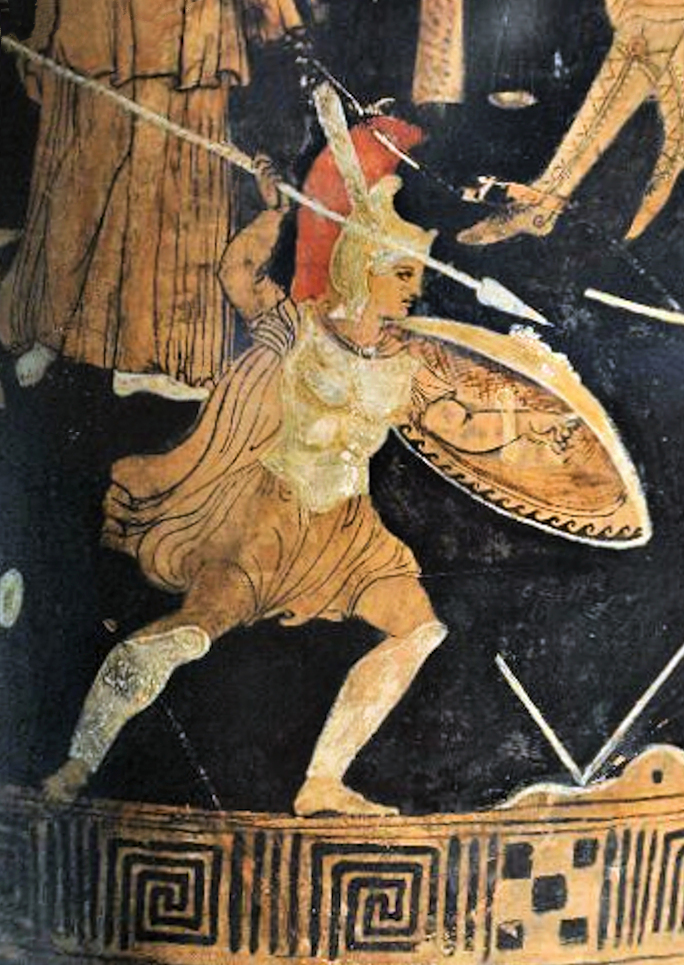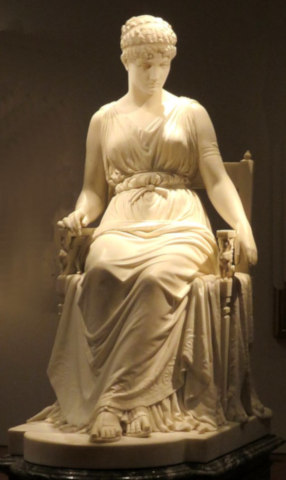

The following is background information on the five topics you may be asked to write an essay on in the Classical literature exam: leadership, fate vs. free will, heroism, conflict, and women in society. In your essay, you must reference at least one piece of Classical literature. This can be any piece of classical literature at all, however for these purposes there is an emphasis on the Greek plays Oedipus Tyrannos, Antigone and Medea.
Leadership

Definitions of good leadership could vary drastically in the Ancient Greek world. Democracy had recently been born in Athens, and many people who supported this system of government argued that the only good leadership was leadership by the masses, rather than by the upper class elite. There were many who thought this way, including the historian and intellectual Herodotus, who wrote that “In a democracy there is, first, that most splendid of virtues, equality before the law.”
Not everyone shared this viewpoint. Another prominent power in Ancient Greece at the time was Sparta, which was run through oligarchy. Oligarchy is a system in which a society is led by only a few individuals, rather than by only one (autocracy) or by all of the people (democracy). These people saw a government run by the richest few rather than by the masses as preferable, because they thought that the richest, who were also usually the most educated, would do a better job of ruling. Aristotle, one of the most highly regarded Ancient Greek philosophers, shared this belief, stating that “A democracy is a government in the hands of men of low birth, no property, and vulgar employments.”
Consider the actions of one of the leaders you have studied, for example Creon in Antigone or Oedipus in Oedipus Tyrannos, and think about whether they would be thought of as a good or bad leader by people like Herodotus who believed in democracy, and by people like Aristotle who didn’t think democracy was a good idea.
Even so, Aristotle, along with many others, thought that while it would be best for the rich to be in charge, those rich rulers had a responsibility to look after the interests of the people. The rich had power over other people, but with this power came the responsibility to look after and improve the lives of the masses. Of course, there were also those who saw it as a leader’s job to look after themselves and other people of high class. Those who believed this were usually rich people themselves.
Would one of the leaders you have studied in Greek literature be considered a good or bad leader by those who thought a leader should listen to the people? Would they be considered a good or bad leader by those who thought leaders should look out for the richest and most powerful people?
Therefore, many people in Ancient Greece had different attitudes about what, exactly, a good leader was: whether they should look out for the poor or only themselves, and whether any one person should lead at all. However, there was one thing everyone could agree good leaders had to do: obey the gods. Greek gods were certainly not all-loving and all-forgiving – they became enraged and squabbled like humans did. If any mortal managed to anger a god, their life would be devastated, so certain rituals had to take place in order to avoid this. Crimes against the gods included blood crimes (killing a blood-related family member), betraying one’s responsibilities as a host to their guests and refusing to carry out the correct funeral rites for a dead body. Committing these crimes could cause family curses that affected not only the perpetrator but also the perpetrator's descendants. This was the case for Laius, his son Oedipus, and his four children, who were all affected by the same family curse. Furthermore, if a crime was committed then a whole city could become polluted and would therefore be faced with disaster. For example, after the King of Thebes Oedipus killed his father, the city of Thebes was faced with a deadly plague. Disobeying the gods was certainly bad leadership.
Did the leaders in the literature you have studied obey the gods at all times? If not, what were the consequences of their actions?
Fate vs. Free Will

In the modern world, many people believe that they have free will – the ability to decide what actions they will take. However, this was not the case in Ancient Greece. In Ancient Greece, fate was seen as the overriding factor that controlled what humans did. Even gods themselves couldn’t fight fate, so it was pointless for mere mortals to try. People could find out what their fate was by going to see an oracle, who would give them a prophecy. These prophecies were usually quite vague and rarely included specific information, meaning they could be interpreted a number of ways. In some Greek plays, however, prophecies were sometimes quite direct. For example, the prophecy in the Greek play Oedipus Tyrannus, that Oedipus would kill his father and marry his mother, was hardly open to misinterpretation.
Have any of the characters in the literature you have studied tried to go against fate? If so, what was the outcome of this?
Nowadays, many people believe in free will, however not everyone does. There are a number of religions which believe in fate, and even people who aren’t religious often believe that “everything happens for a reason”.
There are also many modern people who believe in determinism. This is the concept that no one has free will, because our thoughts and actions have already been determined by factors outside of our control. For example, a common belief is that we are who we are because of a mixture of our genetics and the environment we are born into, and that therefore all of the actions we make are caused by these two factors. A belief in determinism is similar to a belief in fate – both are in direct opposition to the idea that people have free will – however while a belief in fate tends to have a religious or spiritual root, a belief in determinism has a clear scientific basis.
Do you believe you have control over your actions? Why?
Heroism

Heroes were a large part of classical Greece, and stories about famous heroes like Heracles, Odysseus and Perseus were well-known. Modern day heroism is usually associated with selflessness and bravery, however ancient heroes often demonstrated a number of other characteristics. They were always exceptional warriors, and fought without fear of death. They had exceptional courage and strength.
Do the heroes in a piece of classical literature you have read show courage and strength? Think about examples when they have done so.
Greek heroes also tended to be obsessed with their reputation and honour. Kleos, the Ancient Greek word for everlasting fame, was the great ambition of all heroes, even if this came at the cost of their life. For example, before the famous hero Achilles joined the Trojan war, he was told that if he fought he would surely die, but his story would live forever. If he stayed at home he would live a long life, but his name would be lost to history. Achilles chose to fight, choosing fame over life, showing the immense lengths heroes would go to in order to maintain their reputation and achieve glory.
Do the heroes in a piece of classical literature you have read try to protect their honour or their dignity? Do they try to achieve fame?
Given that Ancient Greece was a male-dominated society, it’s unsurprising that most Ancient Greek heroes were male. They were also usually the descendants of a God and/or King; they were always of good lineage.
Of course, like everyone else, heroes had to appease the gods. As powerful as they may have been, angering a god could be devastating. However, heroes often had at least one god on their side, who would do their best to protect them. Heracles was protected by his father, Zeus, Odysseus by Athena, and Bellerophon by his father Poseidon.
Pick a character in a piece of classical literature you have studied. How similar are they to the description of a typical hero? Think about both similarities and differences.
Medea, the granddaughter of the God of the sun, would not be described as a hero in modern terms: she kills her children and her husband’s new wife because he was planning to divorce her. Modern society would not call this heroic. However, Ancient Greeks often had a different idea of heroism: would they regard Medea as heroic?
Conflict

There are many different types of conflict. For example, there is family conflict. In Ancient Greece, the father was the head of the family. His wife and children were little more than his possessions, meaning that they were expected to follow his instructions. When the father in the family was dead or otherwise unable to look after the family, another adult male who was related to them would be given control of the children. For example, after Antigone’s father Oedipus died, she and her sister were looked after by their uncle Creon. He would remain in control of her life until he married her off, in which case her husband would have ownership of her. Other members of the family would usually be expected to agree with and support the head of the family. However, this did not always happen; in the play Antigone, Antigone goes against her uncle Creon’s decision.
Another type of conflict is generational conflict. The conflict between Oedipus and his mother Jocasta is a good example of this, because Jocasta is one generation above her son. In Ancient Greece, elders were to be respected, particularly if they were a member of one’s family, however young people often did come into conflict with their elders.
Gender conflict also occured in Ancient Greek plays. A typical gender conflict can be seen between Antigone and her uncle Creon: Antigone wants to bury her brother but Creon will not allow her to do so. Women were regarded as inferior to men in Ancient Greece, meaning they were usually expected to obey them. In particular, they were expected to obey the man who looked after them: this was their father, then their husband once they married. If their father was dead it would be another man, usually the woman’s closest male relative. This person will be referred to as a woman’s male guardian. In this case, as Antigone’s father Oedipus was dead, her male guardian was Creon so she was expected to obey him. However, in Ancient Greece women were typically in charge of burials and religious domestic matters (including disciplining domestic slaves), so in these areas women sometimes had a greater amount of authority.
Hierarchical conflict can be found within Ancient Greek literature. Hierarchical conflict is conflict between two people or groups with different statuses and levels of power within society. For example, conflict between a King and his people. This occurred between Creon and his people in the play Antigone: Creon’s people want Creon to bury Polyneices, Antigone’s brother, but Creon is determined not to. In modern society, people are pften expected to obey those who have more power than them. However, Ancient Greek citizens were very concerned about their reputation and didn’t want to have a master. Doing what someone else told them to was supposed to be what only slaves did. This meant there was often conflict between those who were supposed to be in charge and their subordinates.
Religious conflict was sometimes an issue in Ancient Greek literature. There was rarely conflict between people of different religions, because for the people who wrote Greek literature there was no question that the gods existed. The characters often directly interacted with the Gods, so there was no reason for doubt. However, there was often conflict about what the Gods wanted. Prophecies were usually vague, so they could be interpreted a number of ways and people could disagree over what was the right course of action. People also sometimes argued about whether prophets could be trusted, like Oedipus and Jocasta did in Oedipus Rex. Furthermore, sometimes people refused to honour the Gods because it was not in their best interest. For example, although the Gods demanded that all people should be buried in the correct manner, King Creon refused to bury his nephew Polyneices. Going against the Gods always had a disasterous outcome.
How many types of conflict can you think of in the pieces of classical literature that you have studied?
Conflict can be more than one type. For example, a conflict could be both generational and hierarchical. What are the types of conflict that occur between Haemon and Creon in Antigone? How about Antigone and Creon? Medea and Jason?
Women in Society

Ancient Greece was a very patriarchal civilisation. This meant that men had most of the power in law, politics and society. For example, in Athens women couldn’t be part of a jury and couldn’t participate in the Assembly (where political decisions were made). Traditionally, a woman’s role was within the home, completing domestic tasks. Most wealthy women, for example, rarely left their home, and were not allowed to go outside unaccompanied.
In the beginning of the play Antigone by Sophocles, Antigone and her sister Ismene, both wealthy women and nieces to the King, secretly meet outside without anyone to accompany them. Do these actions foreshadow how Antigone will either comply with or rebel against a woman’s traditional role?
When a girl was born, she was essentially the property of her father, the head of the family. She was expected to obey her father’s instructions. When she was a young teenager, ownership of her would usually be passed on from her father to her husband, and he would have control of her life. A woman would have no control over who she would marry. In Athens, as a ceremonial part of the marriage process, a girl’s father would state “I give you my daughter to sow for the purpose of producing legitimate children.” This made it clear that a woman’s main purpose was to give birth to healthy children, and if possible ensure that they would reach adulthood.
Medea defies her traditional role as a woman in many different ways. Think of as many ways as you can.
While women had little to no political or legal power, they did have some religious authority. Many important religious figures were female, such as the Oracle at Delphi, widely regarded as the best person to go to in order to receive accurate prophecies. Women were usually in charge of the burial of dead family members, and also often played major roles in religious ceremonies.
At the end of the play Medea by Euripides, Medea refuses to allow Jason to bury his children and instead takes them with her so that she can bury them herself. Is she complying with or defying her traditional role as a woman?
King Creon makes a proclamation that no one shall bury Polyneices, his nephew, because he died trying to rebel against Creon. However, Antigone, his niece, goes against his decision and decides to bury him because it is the will of the gods that every person receives the burial they deserved and as his sister, it is Antigone’s duty to perform burial rites. Is she complying with or defying her traditional role as a woman?